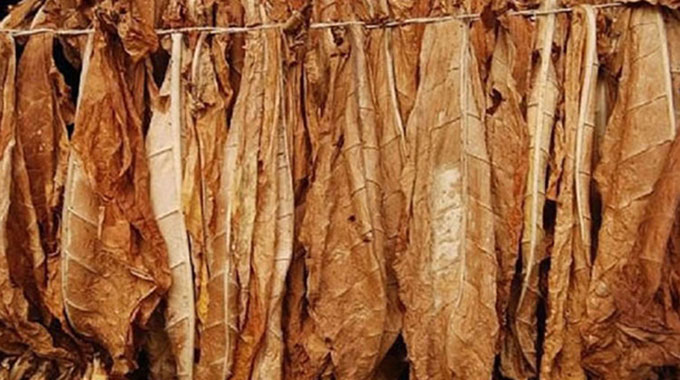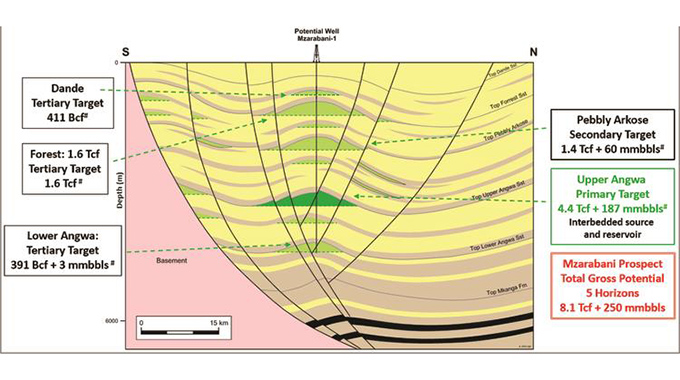More farmers plan to ditch tobacco

Elita Chikwati and Ellen Chasokela
Farmers plan to cut the tobacco crop by 16 percent in the new season after battling with drought, falling prices and the foreign currency payment system last season, a move that will lower export receipts next year unless other high-value export commodities can be grown or produced.
Reserve Bank of Zimbabwe Governor Dr John Mangudya is on record as saying the foreign currency generated through tobacco exports was enough to import fuel to run the country for almost a year.
Statistics at hand show a -16 percent variance in tobacco grower registrations for the 2019/2020 season when compared to the same period last year. This combines those who are reducing their planned crop and those pulling out of the crop altogether.
The 2018/2019 tobacco marketing season was difficult owing to late rains and drought that affected both production and quality.
Farmers met depressed prices last season compared to previous seasons and the payment model of having 50 percent of their money deposited into RTGS accounts and the remaining half in their foreign currency accounts rather than getting cash payments in forex was not seen as helpful.
The challenges have seen some farmers looking to other high-value crops that are less risky when compared to tobacco, with other farmers keeping their options open.
Tobacco farmers tend to be more skilled than average and so can grow more crops if they have suitable land and access to inputs and water.
“There is a -16 percent variance over the same period last year,” said Tobacco Industry and Marketing Board (TIMB) chief executive Dr Andrew Matibiri. “We believe this is transitory as more are expected to register as they plant their crops in the fields.”
Some farmers who spoke to The Herald said they were shifting to other “less risky” crops.
Goromonzi farmer Mr Boniface Chitate, who in 2018 boasted of a thriving tobacco crop and had high expectations from the past marketing season, used part of his foreign currency earnings to buy machinery and implements, but has since switched to horticulture despite having bought tobacco seed for the 2019/2020 season.
“I have decided to diversify to other crops and this season I have cabbage and tomatoes,” he said.
“These horticultural crops give me a return within a short period of time.
“Last season, I experienced challenges with the tobacco payment system. I never got my money that was supposed to be in the nostro account. It took long and was paid in local currency, and by the time I accessed it, it had lost value due to the increasing prices of inputs.
“Although I had bought tobacco seed, I am considering shifting to other crops. I will go back to tobacco if the current challenges are addressed.”
Latest statistics from TIMB show that 136 762 farmers have so far registered to grow tobacco during the 2019/2020 season, a decline from the 162 028 who had registered during the corresponding period last year.
The TIMB statistics show that of the registered growers this season, 7 274 are new farmers, a decline of 79 percent from the 34 845 new growers who had registered for tobacco the same period last year.
In some areas last season, the crop succumbed to drought, while in other parts of the country where the crop survived, it suffered premature ripening, in the process compromising quality and weight.
The poor quality resulted in farmers who delivered a record-breaking crop earning less than in the previous year.
Tobacco deliveries generated just over US$530 million this year, compared to about US$737 million last year.
During the marketing season, prices are calculated in US dollars, but farmers are paid the equivalent in local currency using the interbank exchange rate. Prices ranged between US$2,99 per kg down to just US$0,10/kg depending on the quality of the crop.
“Farmers and the country realised 28,58 percent less from tobacco compared to last year,” said Dr Matibiri.
“This was largely due to the lower quality of crop produced during the drought experienced last year.
“However, it is notable to mention that the previous annual production record of 252,6 million kg set in 2018 was broken — despite the drought experienced — by a new record of 259,5 million kg set in 2019.
“As the regulator for the industry, the TIMB will lobby for solutions so that tobacco marketing progresses with ease.”
The depressed prices saw some farmers walking away with nearly nothing, defeating the notion that the tobacco auctioning system is a better way of determining prices.
Cartels were accused of taking over the buying of tobacco and colluding to peg some unviable prices. This has been a complaint for more than a century of tobacco farming, sometimes with justification.
Zimbabwe National Farmers Union director Mr Edward Dune confirmed that registrations had declined, with plantings being affected by the dry weather conditions.
Mr Dune said farmers were complaining of high inputs and operational costs.
“Farmers are affected by operational and market forces associated with high input costs and distorted leaf pricing matrices,” he said.
“These range from foreign currency accessibility and retention modalities, local cash accessibility from banks and the long periods spent by farmers at auction floors under squalid conditions trying to dispose of their leaf.
“Just like any other businessmen, farmers are considering other options although it will take time to find better regulated, more organised and better competitive enterprises.
“For example, why don’t we export beef, pigs or goats to Asia. These are some of the options. We need assistance to develop.”
Mr Dune said planting of tobacco was underway, but was being affected by power and fuel shortages.
Zimbabwe Commercial Farmers Union director Mr Jeremiah Tevera said the decline in the number of registrations proved that farmers were considering other options.
“Improvements by the Grain Marketing Board on grains also brought back people who had gone to tobacco,” he said.
“People who had been blacklisted or performed badly in the contact system for tobacco cannot go back to the crop.
“This also contributes to the declining figures.”
Tobacco has earned a strategic position in the economy because of its contribution to the gross domestic product and foreign currency earnings, with over three million people in Zimbabwe depending on the industry for their livelihoods.










Comments